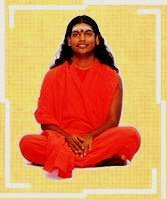How does the mind process information?
When we see something through our eyes called chaksu, which is a digital signal processor, the digital file goes to memory or chitta, and then to mind or manas, and finally takes a leap into ego. Chitta decides what the information is not, to arrive at what it is, through a process of elimination. The mind says, this is a man conducting a class; it identifies the object as a man. Then it leaps into the ego, which, based on past experience, decides whether to sit in the class or go out. Ego decides and you express and act on that decision.
The ego zone is not under your control. There are impressions, past memories, or samskaras. They force you to take illogical, unconscious decisions. You decide to smoke, knowing fully well that it is bad for health. You go ahead anyway. You have no control. Samskaras create conflict and suffering.
Let’s suppose that the time taken from eye to mind is Tp. Till here the process is logical and clear. The time taken for unconscious process — from mind to ego, through samskaras — which distort your file, and twist your decisions, is Tq. As long as Tq is more than Tp, you will be more aware of your unconscious. If not, you are unaware and act on instinct. You are restless. You decide without knowing what you are doing.
When samskaras are more, and they move fast without your knowledge, you are in trouble. If time taken for conscious process is more than the time taken for the unconscious, if Tp is greater than Tq, you act instinctively. If Tp equals Tq, you are in Intelligence level. You will live your life without guilt. When Tq is greater than Tp, you are in super conscious level; your unconscious is infused with silence and intuition.
When you infuse consciousness and silence into this unconscious zone you burn all your samskaras, you become Shiva, you reach superconscious level. When Tp is less than Tq you operate on instinct; if equal, you are operating on intelligence; if Tq is greater, you are operating on intuition.
To awaken your intuition, give your conscious mind a rest. There is a state of mind where you have no thought. Consciousness remains. Modern psychology has no word for this state as it is not aware of this state of meditation, intuition or thoughtless awareness. In Sanskrit, it is called samadhi. If you can experience this state you can experience creativity, courage, confidence; you can take spontaneous decisions; you take responsibility; you decide based on limited data, with no precedence. You get the power and courage to do anything. Your relationships can change.
How do you differentiate between intuition and instinct?
When you act instinctively, you will feel drained: For instance, when you react in anger, you feel guilty. When you act intuitively, you feel energised.
Meditation helps you reach this state. Whenever you find time, be silent, be aware, be conscious; some part of your being wants to express itself more. Tune into the higher energy of intuition and creativity.
Rely on Your Instinct to Rouse the Unconscious
Aug 7, 2008 at 2:13 AM

Series:
Words From The Master
![]()


 to view a larger map and get directions
to view a larger map and get directions











